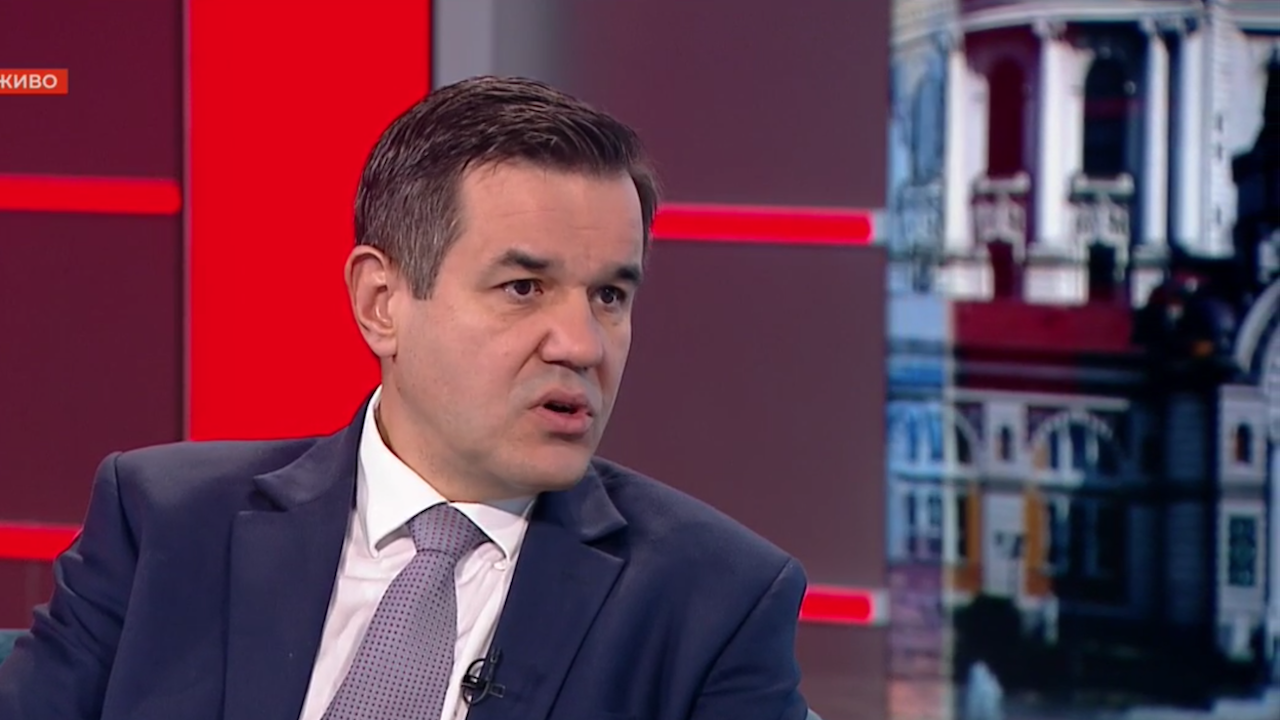A sharp drop in inflation in the coming months in our country is predicted by the Minister of Economy Nikola Stoyanov in "The Day Begins with Georgi Ljubenov"
Nikola Stoyanov was born in 1976 in Sofia.
Graduated in Law at Sofia University.
According to him, the level of inflation continues to fall at this moment as better data is expected for November and December.
"The expectations are that Bulgaria will get away with the recession and have a sharp drop in inflation. So we have good hopes for an excellent 2023," he pointed out.
Nikola Stoyanov
Nikola Stoyanov was born in 1976 in Sofia.
Graduated from "Law" at the University of Sofia, rejected criticism of Bulgaria's readiness for membership in the Eurozone.
"The probability that we will enter the Eurozone on January 1, 2024 is very high. The government is firmly aiming for this date. Inflation will be measured in April-May when the convergence report is. We are taking serious steps and I am confident that inflation will start to fall he pointed out.
The EU embargo on the import of Russian oil, which comes into force on December 5, will not be felt by the people in our country, he assured, pointing out that Bulgaria strictly observes both the sanctions against Russia and the derogation for the import of Russian oil.
Regarding the calls of DPS and "Democratic Bulgaria" for the state to take over the operational management of "Lukoil", Stoyanov commented that it is not important who manages the refinery, because the problems with the supply of crude oil and the export of processed fuel are purely logistical.
The caretaker government has decided how long Lukoil will be able to export fuel
Bulgaria consumes 2.5 tons of diesel per year, which is obtained from 6 tons of crude oil.
In the process of processing the raw material, secondary products are obtained, which are not widely consumed in our country.
If Bulgaria does not export these products, they will fill the warehouses of "Lukoil" for 20 days and the work of the refinery will be blocked, thus it will not be able to produce the necessary amount of diesel for consumption in our country.
"We cannot pour these secondary products into the sea, there is nowhere to store them, if we do not export them, the refinery will have to stop working and then it will not have produced enough diesel," he pointed out.
The government is already working on finding solutions for Lukoil's readiness to work with another type of oil in 2 years, when the derogation expires.
EC: Bulgaria cannot resell Russian oil, even refined oil
Stoyanov reminded that from the first of January the refinery will start paying taxes in our country, which will reduce Russia's profits by 43%.
"For Lukoil to continue operating is not a pro-Russian, but a pro-European position. The government has found a solution and we will actually take away 43% of Lukoil's profit - 10% corporate tax and 33% "surplus profit" tax. Since the refinery in previous years was not paid no tax, now any profit will be excess profit. So we will reduce to the maximum extent the positive effect for Russia, to the maximum extent allowed by Bulgarian laws," he pointed out.
At the same time, however, the discount of 25 cents per liter of fuel for citizens will be removed from January 1st.
Regarding the provision of arms to Ukraine Nikola Stoyanov
Nikola Stoyanov was born in 1976 in Sofia.
A law graduate at the University of Sofia commented that the decision of the National Assembly was aimed at the Bulgarian army and not at the arms industry in our country.
Yesterday it became clear that the list of the Ministry of Defense is ready as the economic minister commented that Bulgaria will provide small arms and ammunition.
"What we give to Ukraine has been calculated in such a way that it does not impair the combat capability of the Bulgarian Army. From what we can give, they (Ukraine) have assessed what they need.
I think that we will provide very serious support," he pointed out he.
Regarding next year's budget, Stoyanov commented that the caretaker government's reluctance to submit a budget will have a much less negative impact than if it did submit a budget.
According to him, the business is satisfied with the cabinet's decision.
"If we submit a budget, we literally do not know what will come out of the parliament. We see how the MPs are bidding more and more. We are afraid of them - how can we say it more clearly!", Stoyanov pointed out.
Nikola Stoyanov
Lukoil
inflation
